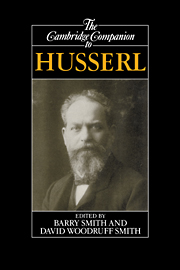10 - Part-whole
Published online by Cambridge University Press: 28 May 2006
Summary
Husserl's third Logical Investigation is perhaps the most significant treatise on the concept of part to be found in the philosophical literature. In it Husserl attempts to analyze the notion of dependent part, to lay down the principles governing its use, and to relate it to more general considerations concerning the nature of necessity and unity.
He begins his study with the consideration of objects in the psychological sphere. A typical example of the kind of object he has in mind is that of a visual datum, a red patch, let us say, and its various aspects or “moments” - its colour, say, or its extension. He takes each of these moments to be peculiar to the object in question; no other datum, no matter how great its resemblance to the original datum, will have the very same moments. He also takes the moments to be, in a suitably broad sense, part of the given object; they are thought to be actually present in it.
Now Husserl is struck, as was his teacher Stumpf, by a peculiar ontological difference between the datum and its moments. The moments are, in a certain sense, dependent objects; they cannot stand on their own. The datum, on the other hand, is independent, capable of standing on its own. Husserl is, therefore, concerned to pin down this distinction, to state exactly in what it consists.
- Type
- Chapter
- Information
- The Cambridge Companion to Husserl , pp. 463 - 486Publisher: Cambridge University PressPrint publication year: 1995
- 27
- Cited by



